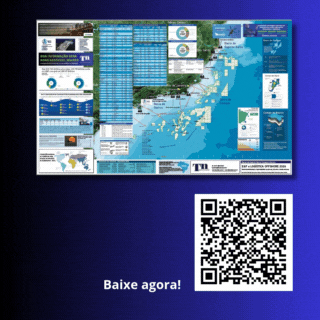Created by the ANP, the new specification of automotive gasoline, with higher quality and efficiency, goes into effect in August
T&B Petroleum/Press Office ANP
15/07/2020 22:32

The new specifications for automotive gasoline, established by the ANP in Resolution No. 807/2020, come into force on the 3rd of August. These new specifications improve the quality of Brazilian gasoline, provide greater energy efficiency, improving vehicle autonomy by reducing consumption, and enable the introduction of more efficient engine technologies, with lower levels of consumption and atmospheric emissions.
Published in January this year, the resolution gave until August 3 for fuel producers to comply with the rules, the date when all gasoline produced in the country must meet the new specifications. An additional period of 60 days will be given for distributors and 90 days for resellers to adapt, allowing the sale of possible products sold until August 2, without fully meeting the new characteristics.
The revision of the specification for automotive gasoline mainly contemplates three points. The first is the establishment of a minimum specific mass (ME) value of 715.0 kg / m3, which means more energy and less consumption.
The second is a minimum value for the distillation temperature of 50% (T50) for gasoline A, of 77.0 ºC. Distillation parameters affect issues such as engine performance, handling and engine warm-up.
The third point is the setting of limits for the octane RON (Research Octane Number), already present in the gasoline specifications of other countries. The setting of such a parameter is shown to be necessary due to new engine technologies and will result in a gasoline with greater performance for the vehicle.
There are two octane parameters - MON (Motor Octane Number) and RON. In Brazil, only the MON octane and the anti-knock index (IAD) were specified, which is the average between MON and RON. The minimum RON octane value for ordinary gasoline will be 92, starting on August 3, 2020, and 93, starting on January 1, 2022. For premium gasoline, it will be 97, starting on August 3 next.
The initiative is the result of the ANP carrying out studies and research on quality standards, considering the monitoring of international specifications and harmonizations, as well as extensive debates with the economic agents of the fuel market. Meets current vehicle fuel consumption requirements and progressively more stringent emissions levels, considering the future scenario of phases L-7 and L-8 of the Vehicle Emissions Control Program (Proconve - Ibama) and the Rota 2030 Program - Mobility and Logistics (Federal Government).
In addition to establishing the new gasoline specifications, ANP Resolution No. 807/2020 determines the quality control obligations to be met by economic agents.



